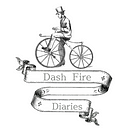The Sisters Grim
August 10th, 1917
Diary of Effie Browntrout, Sisters of Mercy Voluntary Aid Detachment, British Expeditionary Saysquack Corps Casualty Clearing Station, Ypres, Belgium
I have been near the front for several weeks now. Until now, there was great difficulty and confusion treating wounded Saysquacks. Some casualty clearing stations refused to receive them at all — so a specialist unit was organized to meet the need. This too, has met with its own problems. The Grim Sisters, a Roman Catholic order, are my employers, and they are stern but compassionate disciplinarians. However, whilst they treat the wounded Saysquacks with care and kindness, they regard our furry friends rather as heathen barbarians, and they mandate compulsory religious observance (Sunday mass) for all who are conscious and can sit upright.
I expected to spend the first few months of my service training in England, but I transferred here almost immediately after signing the papers. I spent the first few days emptying bed pans, fetching tea for the doctors, restocking bandages and cleaning the loo. But we are greatly understaffed because many VADs have refused to work directly as carers for the Saysquacks, and I was called up into direct service straight away.
By the end of my first week, Sister Tabitha was teaching me how to change dressings, administer medications using a hypodermic needle, and help move stretchers. It’s a very daunting business. The Sisters are keen to correct the slightest mistake in etiquette as well as medical procedure, and I often feel as though I am treated as a child.
The aid station itself is in grand disarray. I am sad to admit that because we are so understaffed, it is untidy. The facilities are substandard, being a church with part of its roof caved in and blankets nailed to window frames where glass has been blown out. Our doctors consist of three medical students from Bristol and a young and inexperienced but fully-trained equine veterinarian who had never seen a Saysquack before his current service. He has been heard to curse under his breath about his “demotion” and the differences between Saysquack and horse anatomy — the former being closer cousins to human beings than horses. To his credit, in his free time, Dr. Roberts spends every moment studying our patients so he may help them more ably in the future.
The beds that the army had given us were all designed for humans, and were consequently much too small to bear the girth and weight of the average Saysquack. Those beds which our casualty patients did not crush outright, we ourselves disassembled and used for fuel to keep the ward warm and make tea. One of the orderlies happened to be a first-class carpenter, and he is furiously going about the saintly task of cobbling together some “Saysquack-sized” beds for us in his spare time, but he is just one person, and he has little free time to spare. Many of them lay upon blankets on the floor, at present.
We have received a steady stream of patients now that the British Expeditionary Saysquack Corps and reserves are making a continuous “push” at the frontlines. Just the other day, we had 200 souls from the 3rd Olympian after another attack near the Somme. We hear talk that the Americans may be fielding a Saysquack force soon too, though no one knows for sure. They are said to be “involuntaries” — that is, conscripts who have no desire to fight. Of course, my mind always returns to Branwell and his unit the 2nd Olympian and their terrible fate. As I myself have seen, the Saysquack may be larger, tougher, and more impermeable to violent assault than human beings, but they too have bodies that can be broken (as do the human officers who lead them) and this new mechanized war in which we find ourselves is full of novel, beastly devices whose sole purpose it is, to snuff the life from even the hardiest of creatures. Oh, that it would end soon!
I have never been a praying woman, but I do sometimes kneel with the Sisters during mass, and in the flickering of the candle light at the alter I send up my wish to whatever maker there is, for the protection of my family, for poor Branwell’s soul, and to ease the suffering of those who come before me. Their torments are almost unendurable. There is never enough pain medicine — as well as the pervasive belief that the Saysquack does not feel pain the same way human beings do, despite all evidence to the contrary.
I pray also that Horace forgives me for coming here, that he sees the heart and the necessity in what I do. It is for love of him and the memory of Branwell as much as love of country that I am here. I have had no word from Horace for ages except vague reports of troop movements. I scan the casualty lists and do not find his name — no news is good news — and I must find peace in that until I hear from him. I do not know if he has even received word of Branwell’s death.
One consolation I do find, is contact between by new friend Ethel Roosevelt, who alerted me to the idea of joining the Voluntary Aid Detachment. The American Ambulance Hospital where she serves is not far, and sometimes on our days off we meet and take tea together. We share all that we have in common and the stories of the silly rivalry between my husband and her father, Theodore Roosevelt (which we both think is ridiculous) and we both wish there were some way they could be friends and help each other during these trying times, as we have done.
Like what you’re reading? Subscribe to my newsletter: https://dashfire.substack.com/
Care to read a hilarious account of Theodore Roosevelt hunting Bigfoot? Find it here: https://www.amazon.com/Squabble-Titans-Recollections-Roosevelt-Rainforest/dp/B097X4R4LN
